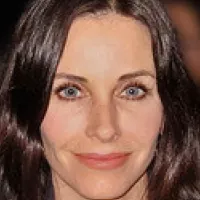Turkey, officially the Republic of Türkiye, is a transcontinental country located mainly in West Asia (Anatolia) and partly in Southeast Europe (East Thrace). It is bordered by the Black Sea, Aegean Sea, and Mediterranean Sea, and shares borders with several countries including Georgia, Armenia, Azerbaijan, Iran, Iraq, Syria, Greece, and Bulgaria. With a population exceeding 85 million, Turkey's inhabitants are primarily ethnic Turks, with Kurds as the largest minority. While officially secular, Turkey has a Muslim-majority population. Ankara is the capital, while Istanbul serves as the largest city and economic hub. Other significant cities include İzmir, Bursa, and Antalya.
1914: Percentage of Non-Muslims
In 1914, the percentage of non-Muslims in Turkey was 19.1%.
1918: Start of Turkish Architecture Divisions
Since 1918, Turkish architecture can be divided into three parts.
1923: Reforms Instituted by Atatürk
After the proclamation of the republic in 1923, Atatürk instituted reforms such as the language reform and alphabet reform.
1927: Percentage of Non-Muslims
By 1927, the percentage of non-Muslims in Turkey had fallen to 2.5%.
1950: Second Part of Turkish Architecture Divisions
From 1950, the second part includes urbanization, modernization, and internationalization.
1950: Population Data
In 1950, Turkey's population was 20.9 million.
1965: Last Census Including Ethnicity Statistics
The 1965 Turkish census was the last to include statistics on ethnicity.
1973: First Nobel Prize in Literature Nominee
In 1973, Memed, My Hawk by Yaşar Kemal, was Turkey's first Nobel Prize in Literature nominee.
1980: Third Part of Turkish Architecture Divisions
Since 1980, the third part is defined by consumer habits and international trends, such as shopping malls and office towers.
2003: Universal Public Healthcare System
Since 2003, the Ministry of Health has run a universal public healthcare system known as Universal Health Insurance (Genel Sağlık Sigortası).
2006: KONDA's estimation of ethnic Turks in Turkey
Based on a survey, KONDA's estimation was that 76% of the Turkish population was ethnic Turks in 2006.
2006: KONDA's Estimate for Non-Islamic Religions
In 2006, KONDA estimated that 0.18% of the Turkish population adhered to non-Islamic religions.
2006: Non-religious population
In 2006, KONDA estimated that 0.47% of the Turkish population had no religion.
2006: KONDA's Estimate for Muslims
In 2006, KONDA estimated that 99.4% of the Turkish population was Muslim.
2006: KONDA's Estimation of Non-Kurdish and Non-Zaza Ethnic Minorities
In 2006, KONDA estimated that non-Kurdish and non-Zaza ethnic minorities constituted 8.2% of the population.
2006: Interethnic Marriages Statistics
In 2006, an estimated 2.7 million ethnic Turks and Kurds were related through interethnic marriages.
2006: Nobel Prize in Literature
Orhan Pamuk won the 2006 Nobel Prize in Literature.
2009: Inaugural Contemporary Turkish Art Sale
The inaugural contemporary Turkish art sale by Sotheby's London was in 2009.
2011: Nonbelievers
According to KONDA, the share of adult citizens who identified as nonbelievers increased from 2% in 2011.
2011: Start of Syrian Civil War
Before the start of the Syrian civil war in 2011, the estimated number of Arabs in Turkey varied from 1 million to more than 2 million.
2011: Improvements in Education Access
From 2011, Turkey saw improvements in education access, including significant rise in the rates of upper secondary and tertiary education completion, and quadrupling of pre-school institutions.
2013: Court Ruling on Lausanne Treaty and Assyrians
In 2013, the Ankara 13th Circuit Administrative Court ruled that the minority provisions of the Lausanne Treaty should also apply to Assyrians in Turkey and the Syriac language.
2013: City Hospitals Plan
The government planned several hospital complexes, known as city hospitals, to be constructed since 2013.
2016: Turkish Television Dramas Air in South and Central America
After sweeping the Middle East's television market, Turkish shows have aired in more than a dozen South and Central American countries in 2016.
2016: Presidential Appointment of University Rectors
Since 2016, the president of Turkey directly appoints all rectors of all state and private universities.
2018: Health survey on Ideal Children
According to a health survey conducted in 2018, the ideal number of children per woman was 2.8, rising to 3 for married women.
2018: Health Expenditure as Share of GDP
Despite universal health care, total expenditure on health as a share of GDP in 2018 was the lowest among OECD countries at 6.3% of GDP.
2019: National Technology Initiative Launched
In 2019, Turkey launched its National Technology Initiative to boost the output of high-value-added products, focusing on areas like advanced materials, artificial intelligence, and biotechnology.
April 2020: Turkey hosts the largest number of refugees in the world
As of April 2020, Turkey hosts the largest number of refugees in the world.
November 2020: Syrian Refugees in Turkey
In November 2020, there were 3.6 million Syrian refugees in Turkey, including Syrian Kurds and Syrian Turkmens.
2020: Irreligious Generation Z
A 2020 Gezici Araştırma poll found that 28.5% of the Generation Z identified as irreligious.
2020: Population Data
By 2020, Turkey's population more than quadrupled to 83.6 million from 20.9 million in 1950.
2021: Nonbelievers
According to KONDA, the share of adult citizens who identified as nonbelievers increased to 6% in 2021.
2021: Improvements in Education Access
By 2021, improvements in education access included significant rise in the rates of upper secondary and tertiary education completion, and quadrupling of pre-school institutions since 2011.
2021: Ethnic Kurds Identification Survey
In 2021, 19% of adult citizens identified as ethnic Kurds in a survey.
2021: Survey on Non-Turk and Non-Kurd Identification
In 2021, 4% of adult citizens identified as non-ethnic Turk or non-ethnic Kurd in a survey.
2021: Russian Migration
Migration of Russian citizens to Turkey increased more than 218% in 2022 compared to 2021.
2022: Russian Migration
In 2022, nearly 100,000 Russian citizens migrated to Turkey, representing a 218% increase from 2021.
May 2023: Ukrainian Refugees
As of May 2023, approximately 96,000 Ukrainian refugees from the 2022 Russian invasion of Ukraine had sought refuge in Turkey.
August 2023: Refugee Statistics
As of August 2023, the number of Syrian refugees in Turkey was estimated to be 3.3 million, a decrease of about 200,000 since the beginning of the year.
November 2023: Syrian Citizenship
By November 2023, the Turkish government had granted citizenship to 238,000 Syrians.
2023: Population Statistics
In 2023, Turkey's population was recorded as 85,372,377, excluding Syrians under temporary protection, with a population growth rate of 0.1% and a total fertility rate of 1.51 children per woman.
2023: Foreign Citizens in Turkey
In 2023, there were 1,570,543 foreign citizens in Turkey, excluding Syrians under temporary protection.
2024: Top Universities in Turkey
According to the 2024 Times Higher Education ranking, the top universities in Turkey were Koç University, Middle East Technical University, Sabancı University, and Istanbul Technical University.
2024: First Domestically Manufactured Electron Accelerator Operational
In 2024, Turkey's first electron accelerator, manufactured domestically, became operational.
2025: First Domestically Manufactured Quantum Computer and Communication Satellite Operational
In 2025, Turkey's first quantum computer and communication satellite, both manufactured domestically, became operational.
Mentioned in this timeline

Basketball is a team sport played on a rectangular court...
Ukraine is a country in Eastern Europe the second-largest on...
Qatar is a country located on the Qatar Peninsula in...
The Union of Soviet Socialist Republics USSR existed from to...
Syria officially the Syrian Arab Republic is a West Asian...
Iraq officially the Republic of Iraq is a West Asian...
Trending

29 minutes ago Official Pokémon LEGO Sets Launch Worldwide on Pokémon Day 2026!

29 minutes ago Scream 7 Premiere Sees Protests After Melissa Barrera's Firing; Cast Reunites.

29 minutes ago Stock market plunges after PPI inflation data; Dow, S&P 500, Nasdaq decline.
30 minutes ago US advises embassy staff to leave Israel amid Iran strike threats, urging speed.

30 minutes ago IndyCar Season Opens in St. Petersburg: O'Ward and Palou in Focus.

30 minutes ago Norah O'Donnell Back on CBS Mornings, Highlights Women in 'We the Women'
Popular

Jesse Jackson is an American civil rights activist politician and...

Barack Obama the th U S President - was the...

Susan Rice is an American diplomat and public official prominent...

XXXTentacion born Jahseh Dwayne Ricardo Onfroy was a controversial yet...

Michael Joseph Jackson the King of Pop was a highly...

Kashyap Pramod Patel is an American lawyer who became the...
